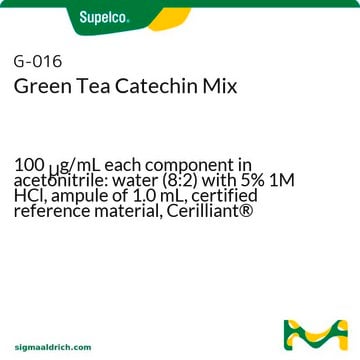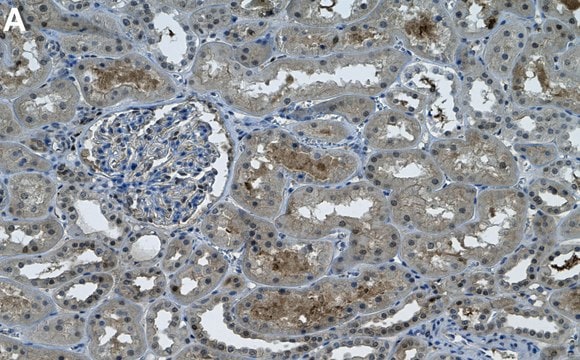03960590
Epigallocatechin
primary reference standard
Synonym(s):
(−)-Epigallocatechin, (−)-cis-2-(3,4,5-Trihydroxyphenyl)-3,4-dihydro-1(2H)-benzopyran-3,5,7-triol, (−)-cis-3,3′,4′,5,5′,7-Hexahydroxyflavane
About This Item
Recommended Products
grade
primary reference standard
shelf life
limited shelf life, expiry date on the label
manufacturer/tradename
HWI
application(s)
food and beverages
storage temp.
−20°C
SMILES string
O[C@@H]1Cc2c(O)cc(O)cc2O[C@@H]1c3cc(O)c(O)c(O)c3
InChI
1S/C15H14O7/c16-7-3-9(17)8-5-12(20)15(22-13(8)4-7)6-1-10(18)14(21)11(19)2-6/h1-4,12,15-21H,5H2/t12-,15-/m1/s1
InChI key
XMOCLSLCDHWDHP-IUODEOHRSA-N
Looking for similar products? Visit Product Comparison Guide
Related Categories
General description
Exact content by quantitative NMR can be found on the certificate.
Application
Biochem/physiol Actions
Storage Class Code
11 - Combustible Solids
WGK
WGK 3
Flash Point(F)
Not applicable
Flash Point(C)
Not applicable
Choose from one of the most recent versions:
Certificates of Analysis (COA)
Don't see the Right Version?
If you require a particular version, you can look up a specific certificate by the Lot or Batch number.
Already Own This Product?
Find documentation for the products that you have recently purchased in the Document Library.
Customers Also Viewed
Our team of scientists has experience in all areas of research including Life Science, Material Science, Chemical Synthesis, Chromatography, Analytical and many others.
Contact Technical Service





